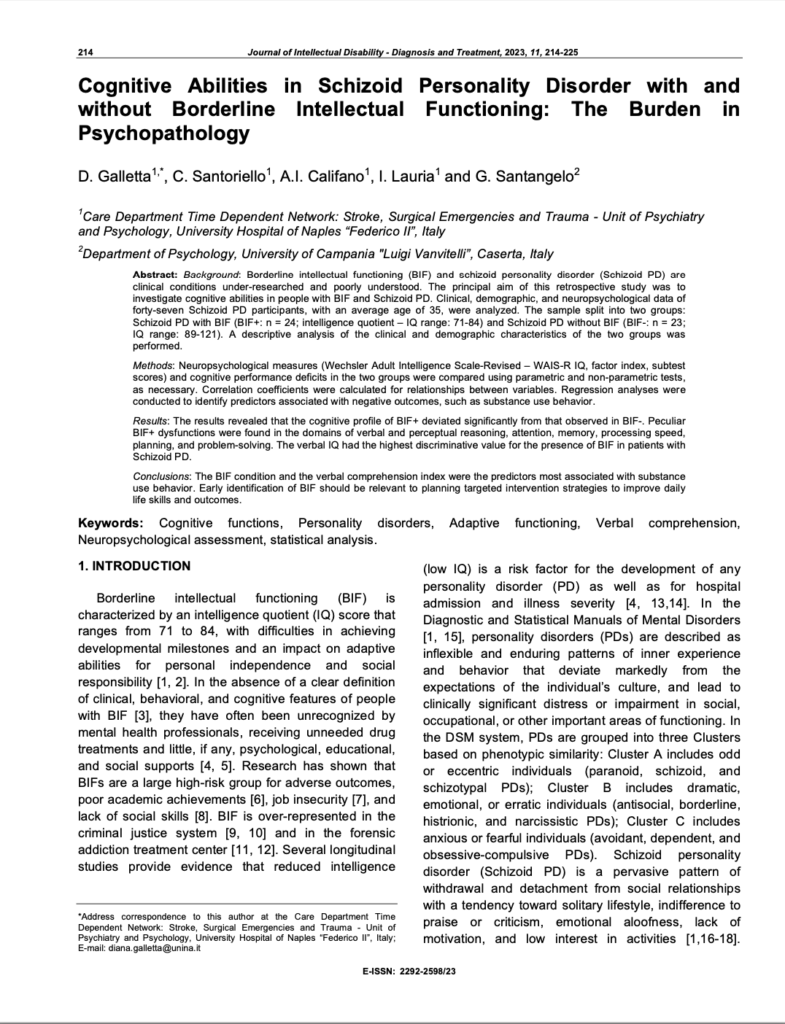Diana Galletta, Carmen Santoriello, Ilaria Lauria, A.I. Califano
Abstract
Background: Borderline intellectual functioning (BIF) and schizoid personality disorder (Schizoid PD) are clinical conditions under-researched and poorly understood. The principal aim of this retrospective study was to investigate cognitive abilities in people with BIF and Schizoid PD. Clinical, demographic, and neuropsychological data of forty-seven Schizoid PD participants, with an average age of 35, were analyzed. The sample split into two groups: Schizoid PD with BIF (BIF+: n = 24; intelligence quotient – IQ range: 71-84) and Schizoid PD without BIF (BIF-: n = 23; IQ range: 89-121). A descriptive analysis of the clinical and demographic characteristics of the two groups was performed. Methods: Neuropsychological measures (Wechsler Adult Intelligence Scale-Revised – WAIS-R IQ, factor index, subtest scores) and cognitive performance deficits in the two groups were compared using parametric and non-parametric tests, as necessary. Correlation coefficients were calculated for relationships between variables. Regression analyses were conducted to identify predictors associated with negative outcomes, such as substance use behavior. Results: The results revealed that the cognitive profile of BIF+ deviated significantly from that observed in BIF-. Peculiar BIF+ dysfunctions were found in the domains of verbal and perceptual reasoning, attention, memory, processing speed, planning, and problem-solving. The verbal IQ had the highest discriminative value for the presence of BIF in patients with Schizoid PD. Conclusions: The BIF condition and the verbal comprehension index were the predictors most associated with substance use behavior. Early identification of BIF should be relevant to planning targeted intervention strategies to improve daily life skills and outcomes.


